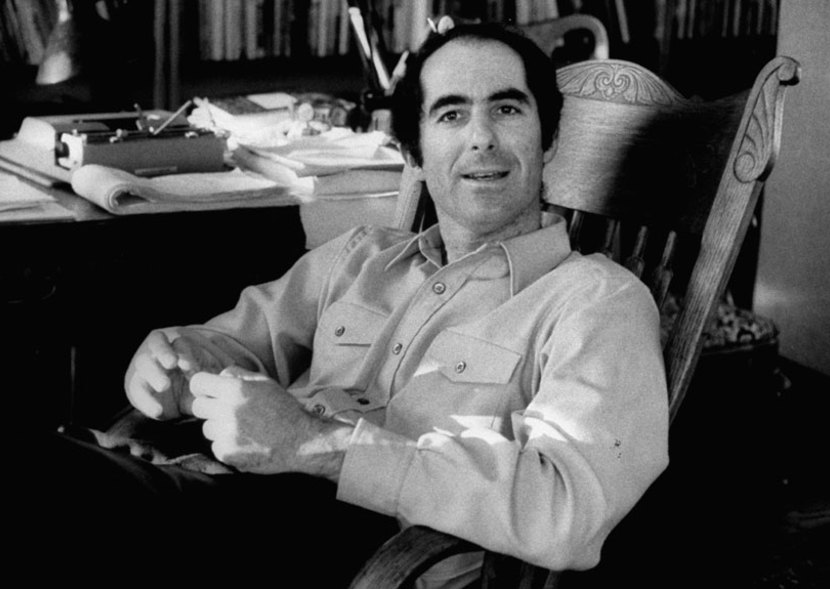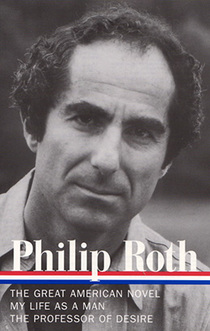
Major works:
Goodbye, Columbus • Portnoy’s Complaint • The Ghost Writer • Sabbath’s Theater • American Pastoral • The Plot Against America
“Once I’d gained access to what he had to offer, Roth catalyzed my yearnings to high seriousness with the sense that the contemporary texture of reality demanded not only remorseless interrogation but remorseless caricature and ribbing. Contemporary reality, including perhaps especially the yearning to high seriousness, needed to be serially goosed.”
—Jonathan Lethem
“There aren’t supposed to be degrees of intensities of uniqueness, and yet Roth is somehow inordinately unique. He is bloodymindedly himself, himself, himself.”
—Martin Amis
American Pastoral
Philip RothI was thinking again of the Swede, of the notorious significance that an outlaw daughter had thrust on him and his family during the Vietnam War. A man whose discontents were barely known to himself, awakening in middle age to the horror of self-reflection. All the normalcy interrupted by murder. All the small problems any family expects to encounter exaggerated by something so impossible ever to reconcile. The disruption of the anticipated American future that was simply to have unrolled out of the solid American past, out of each generation’s getting smarter—smarter for knowing the inadequacies and limitations of the generations before—out of each new generation’s breaking away from the parochialism a little further, out of the desire to go the limit in America with your rights, forming yourself as an ideal person who gets rid of the traditional Jewish habits and attitudes, who frees himself of the pre-America insecurities and the old, constraining obsessions so as to live unapologetically as an equal among equals.
And then the loss of the daughter, the fourth American generation, a daughter on the run who was to have been the perfected image of himself as he had been the perfected image of his father, and his father the perfected image of his father’s father . . . the angry, rebarbative spitting-out daughter with no interest whatever in being the next successful Levov, flushing him out of hiding as if he were a fugitive—initiating the Swede into the displacement of another America entirely, the daughter and the decade blasting to smithereens his particular form of utopian thinking, the plague America infiltrating the Swede’s castle and there infecting everyone. The daughter who transports him out of the longed-for American pastoral and into everything that is its antithesis and its enemy, into the fury, the violence, and the desperation of the counterpastoral—into the indigenous American berserk.
The old intergenerational give-and-take of the country-that-used-to-be, when everyone knew his role and took the rules dead seriously, the acculturating back-and-forth that all of us here grew up with, the ritual postimmigrant struggle for success turning pathological in, of all places, the gentleman farmer’s castle of our superordinary Swede. A guy stacked like a deck of cards for things to unfold entirely differently. In no way prepared for what is going to hit him. How could he, with all his carefully calibrated goodness, have known that the stakes of living obediently were so high? Obedience is embraced to lower the stakes. A beautiful wife. A beautiful house. Runs his business like a charm. Handles his handful of an old man well enough. He was really living it out, his version of paradise. This is how successful people live. They’re good citizens. They feel lucky. They feel grateful. God is smiling down on them. There are problems, they adjust. And then everything changes and it becomes impossible. Nothing is smiling down on anybody. And who can adjust then? Here is someone not set up for life’s working out poorly, let alone for the impossible. But who is set up for the impossible that is going to happen? Who is set up for tragedy and the incomprehensibility of suffering? Nobody. The tragedy of the man not set up for tragedy—that is every man’s tragedy.



